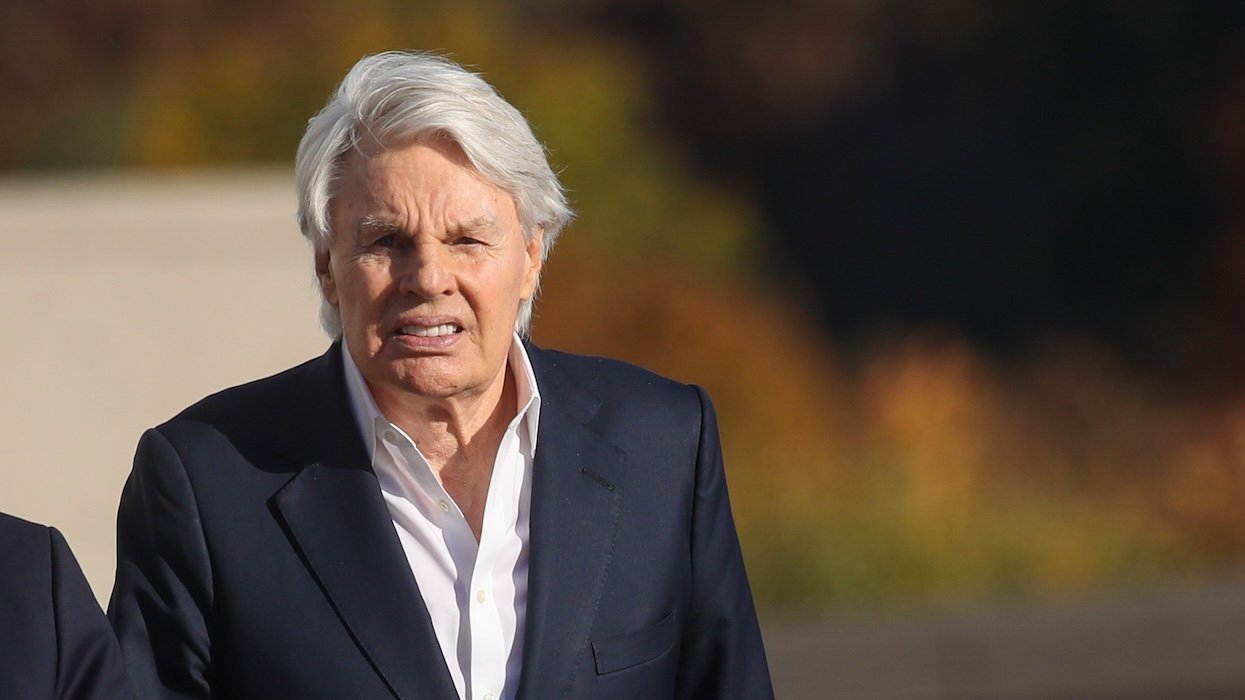CONTACTStaffCAREER OPPORTUNITIESADVERTISE WITH USPRIVACY POLICYPRIVACY PREFERENCESTERMS OF USELEGAL NOTICE
© 2025 Pride Publishing Inc.
All Rights reserved
All Rights reserved
By continuing to use our site, you agree to our Private Policy and Terms of Use.
In December 1993 a handsome 21-year-old man named Brandon Teena was raped and later murdered on New Year's Eve by two men after they discovered he had been born a woman. The tragedy, which took place in rural southeastern Nebraska, inspired the award-winning 1999 film Boys Don't Cry. It also led to a documentary, a play, lengthy articles in national magazines, and numerous homespun tribute sites on the Internet. Teena's death also touched off a civil rights movement. In the days after he was killed, a new generation of activists banded together to demand civil rights protections for the transgender community. Now a decade later, hate-crimes laws in states and municipalities that specifically include transgendered people have increased from nine to 65, according to the Transgender Law Policy Institute. This year California became the fourth state to adopt such a law. Big corporations, such as Hewlett-Packard and Nike, have adopted similar protections. And 145 members of Congress have banned such discrimination in their offices, according to Riki Wilchins, executive director of the Washington, D.C.-based Gender Public Advocacy Coalition. "How many times do you get to see a giant sea change like this in people's perceptions?" Wilchins said. "But you look at Congress, corporate America, and cities and states...and you see this enormous change in how people are looking at gender as a civil rights issue." But those triumphs have been a long time coming, advocates say. One problem for the community, which encompasses a range of identities including cross-dressers and transsexuals, is that allies have been hard to come by. Though transgendered people were at the forefront of New York City's Stonewall Riots, which in 1969 led to the gay rights movement, the relationship between the transgender and gay communities hasn't always been easy. "For a long time the gay movement was like, 'Well, that's an interesting problem, but it's not our problem. You folks are too weird. We don't want to talk to you,"' said Paisley Currah, executive director of the Center for Lesbian and Gay Studies at Brooklyn College in New York. But both groups experience discrimination for transgressing perceived gender norms. Teena's story helped reveal that common ground, Currah said. And over time, many gay and lesbian rights organizations altered their mission statements to include transgendered people. The national attention given to Teena's murder also helped introduce the idea of being transgendered to mainstream America, said Shannon Minter, a board member of the Transgender Law and Policy Institute in New York. "People are just much less freaked out about the concept and see us more as human beings with partners, families, children," said Minter, who is himself transgendered. Many activists say Teena's murder attracted so much attention because of its brutality and the failure of law enforcement to protect him. John Lotter and Marvin Nissen were convicted of murdering Teena, who dated a female friend of the men. They also killed Lisa Lambert, 24, and Philip DeVine, 22, who had witnessed Teena's death in a rural farmhouse. In a scathing 20-page opinion issued in 2001, Nebraska supreme court chief justice John Hendry said former Richardson County sheriff Charles Laux showed indifference by referring to Teena as "it" and not immediately arresting the rape suspects. Lotter and Nissen had threatened to kill Teena if he reported the rape, which took place just a week before his murder. Laux lost a bid in 2002 to become sheriff in neighboring Johnson County. Though much has improved for the transgender community in the last 10 years, there is still a long way to go, Minter said. Over the past year, Remembering Our Dead, an online memorial that tracks bias murders of transgendered people throughout the world, has recorded 17 deaths in the United States. One goal of the transgender community is a federal hate-crimes law that explicitly includes transgendered people, Minter said. Despite changes elsewhere, not much is different in the state where Teena was murdered. Nebraska passed a hate-crimes law in 1997, but it was found unconstitutional after a 2000 U.S. Supreme Court ruling in a New Jersey case. Though the 1997 law did include bias crimes regarding sexual orientation, it did not refer specifically to transgendered people. Few in Falls City, the town where Teena met Lotter and Nissen and where the two men were tried, want to talk about what happened. Some have voiced frustration at the case's cost to the county and the desire to move on. "It just happened here, and it's...a great town," said resident Mary Symonds. "Every town's got some weird people." Symonds noted that Teena wasn't a native of Falls City. He had moved there from Lincoln. About 25 miles away from Falls City in the tiny town of Humboldt, the small white farmhouse where Teena, Lambert, and DeVine were killed attracts a regular stream of onlookers. "They just drive and stare and, I guess, get a thrill out of that," said Dagmar Jansen, who moved about two years ago with her family into the house off a two-lane highway about a mile outside of town. She says onlookers--three to four per week at the peak when she moved in--quickly speed away as soon as they see signs that someone is home. Jansen, however, seems less disturbed by the thought of living at the site of three murders than by the intolerance they represent. "It's horrible," she said. "It probably comes from prejudice and people not being open-minded. I think by the year 2003, people should be able to live for who they are and not for what people think they should be."
From our Sponsors
Most Popular
31 Period Films of Lesbians and Bi Women in Love That Will Take You Back
December 09 2024 1:00 PM
18 of the most batsh*t things N.C. Republican governor candidate Mark Robinson has said
October 30 2024 11:06 AM
True
After 20 years, and after tonight, Obama will no longer be the Democrats' top star
August 20 2024 12:28 PM
Trump ally Laura Loomer goes after Lindsey Graham: ‘We all know you’re gay’
September 13 2024 2:28 PM
Melania Trump cashed six-figure check to speak to gay Republicans at Mar-a-Lago
August 16 2024 5:57 PM
Latest Stories
A small town's 'Pride Wall' was vandalized and taken down. They built it back even better
December 31 2024 10:49 AM
America's best cities for tops and bottoms, according to Squirt
December 30 2024 9:33 PM
Judge rules against gender-affirming care for transgender prisoners
December 30 2024 8:02 PM
Pete Buttigieg remembers warmth and kindness of Jimmy and Rosalynn Carter
December 30 2024 3:59 PM
19 LGBTQ+ movies & TV shows coming in January 2025 & where to watch them
December 30 2024 3:54 PM
Man arrested under Russia's 'international LGBT extremism' law dies in custody
December 30 2024 3:24 PM
Stonewall started it—but who writes the next chapter?
December 30 2024 11:00 AM
J.K. Rowling falsely claims 'there are no trans kids'
December 30 2024 10:12 AM
Why we will never have another president like Jimmy Carter again
December 29 2024 6:19 PM
President Jimmy Carter dead at 100 — here's his history as an LGBTQ+ ally
December 29 2024 4:50 PM
Don't be 'weak & gay': Republican announces congressional run with controversial video
December 27 2024 3:51 PM
'A Complete Unknown's Timothée Chalamet, Monica Barbaro on music, gender & protest
December 27 2024 2:57 PM
Gender studies pioneer Judith Butler: Trans women won't erase cis women
December 27 2024 1:01 PM
Kyrsten Sinema defends filibuster in farewell address to Senate
December 26 2024 7:48 PM
Queer Latina-owned lemonade shop in San Antonio gets a business-saving grant from HRC
December 26 2024 5:22 PM
Abercrombie & Fitch’s former CEO Mike Jeffries has dementia, his lawyers say
December 26 2024 3:03 PM
Georgia couple sentenced to 100 years in prison for sexual abuse of adopted kids
December 26 2024 2:37 PM
Trending stories
Recommended Stories for You


















































































